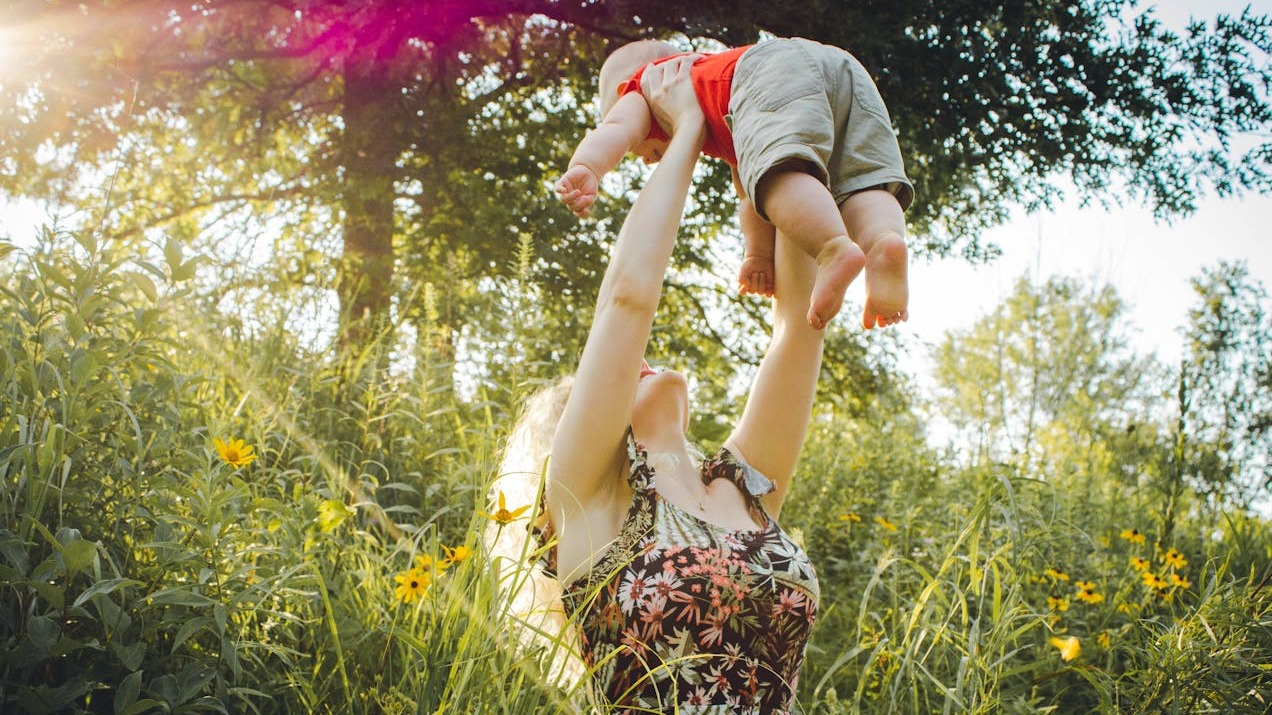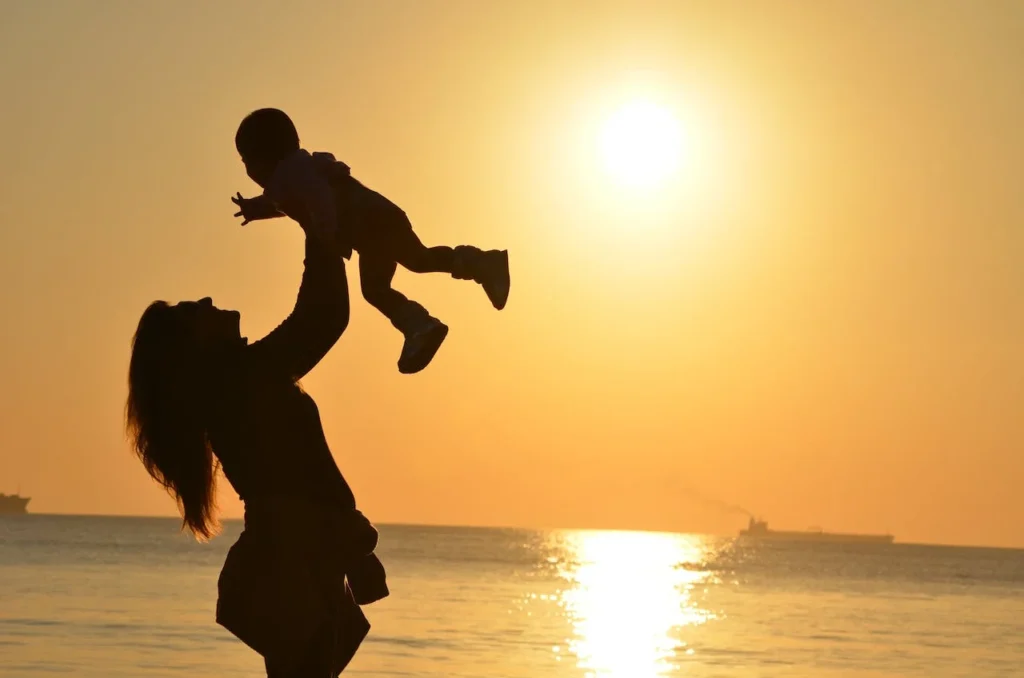Science
China Conquers Space: First an Asteroid, Then a Distant Comet
15 July 2025

“Even if everything in the world is lost, if everyone abandons him, he always has me, his mother, and I will always love him. I wanted him to know there is nothing more important to me in the world than him,” declares Anna Karenina in Leo Tolstoy’s eponymous novel, faced with the prospect of losing her children. A young woman once heard her mother say, “You have given birth to a child. From now on, you will never sleep peacefully again.” This is a harsh truth, but a mother is always with her child. As physical closeness in adulthood is replaced by thoughts, the mother’s life is always accompanied by care for her children.
Establishing a proper attachment pattern towards the mother in early childhood determines the entire later life, especially the way we will build relationships. Closeness, love, and fulfilling other similar needs are the foundation of personality development. Motherhood brings many challenges for a woman, but beyond the obvious sacrifices, it can be a very satisfying relationship.
The days when newborns were isolated from their mothers immediately after birth are thankfully gone. The enormous role of early contact in forming attachment is no longer questioned. A child, who has developed for nine months in a woman’s womb, knows her voice well, and her touch and warmth are soothing for him. The moment of first hugging one’s newborn child is not only a moving moment but also a key one in establishing an attachment pattern. Skin-to-skin contact provides security and comfort to the child and mitigates the stress associated with birth. Close contact also helps regulate the newborn’s body temperature, breathing, and heart rate. Recent clinical studies have also demonstrated the significant impact of physical contact on weight gain in premature babies, as it supports their healthy development. Hugging one’s newborn also brings benefits to the mother, as it supports the release of oxytocin, the “love hormone,” and reduces stress levels.
The way a child is fed remains the exclusive choice of the parents, especially the mother. Not every woman can breastfeed, and it does not mean that her child will develop worse. Modern analogs of natural nourishment are becoming better, and the need for closeness can be satisfied in many ways.
However, a woman’s ability to produce milk is a fascinating phenomenon that seems to go beyond biology. Breast milk not only plays a nutritional role but is also the first source of antibodies for the little organism, which has not yet developed its immune system. It adapts to the changing needs of the child as it grows. Its composition changes to meet the increasing demands of the child. Moreover, natural nourishment reduces the risk of infections and allergies, and the anatomical structure of the breast allows for easier regulation of the pace of feeding through easier sucking control.
Breastfeeding also brings a range of health benefits for the mother. It contributes to the faster return of the uterus to its normal size and helps in losing weight after pregnancy, and also reduces the risk of breast and ovarian cancer.

Interactions with parents are a child’s first social experience. The nature of these interactions will determine the child’s later psychosocial development. The most popular theory regarding the significance of parents’ roles during childhood is John Bowlby’s attachment theory. The development of a proper relationship pattern, or secure attachment, provides a strong foundation for healthy personality development. However, this does not mean that one must be a perfect parent. British pediatrician Donald Winnicott formulated five conditions necessary for a child’s healthy development, aiming to protect individuals from falling into the trap of parental perfectionism. He believed that to ensure a child’s psychological well-being, it is sufficient to be a “good enough” parent (as discussed in the article Attachment to family as a remedy for the plague of suicides? Parent: hear me, understand, love!).
Adolescence is a very intense and difficult time for both the child and the parents. The beginning of the process of individuation, shaping one’s own identity, is a painful trial for both sides in establishing boundaries and defining one’s “self.” This process rarely occurs peacefully, due to the dynamics of hormonal and psychophysical processes.
Patience and understanding are certainly useful traits in supporting a young person who often cannot cope with themselves and finds it difficult to understand what is happening to them. Although it may seem to an external observer that peer groups are most important to teenagers and that parents lose their influence and authority (which is partly true due to the forming of an independent identity), emotional support from the mother can provide a stable point of reference. Finding a place for open and honest communication during this challenging time can help our child understand the experiences and difficulties they are facing.
Investing in a good relationship also fosters trust, which is essential in providing the child with the first education on health and safety. A parent who understands the importance of support at this age and creates a space for open discussion on any topic is one of the most important factors in reducing the risk of accidental sexual contacts or the use of psychoactive substances.
We recommend: Women in the 21st Century: A Quest for Equity
Even though every mother knows that her child will one day leave the family home to spread their wings and start an independent life, the moment of bidding farewell to her grown son or daughter always breaks her heart. This is a natural consequence of the separation process from an object that has been a source of solace, warmth, and safety. The mother is no longer essential for survival and, although she remains important, her role completely changes. From an active caregiver and protector, she becomes an observer, a quiet voice of wisdom and experience, and support in crises. However, she must remain in the shadows so that the young adult learns to take responsibility for their decisions and to live life, sometimes bearing difficult consequences. And when a child suffers, even an adult one, the mother suffers with them, knowing that this is the way of things, that wisdom is gained through difficult and painful experiences, and that those we love cannot and should not be protected from everything that is unpleasant or inconvenient.
It is often said, somewhat humorously, that a mother becomes indispensable in her child’s life again when she becomes a grandmother. Those who can rely on their parents’ help and active participation of grandparents in caring for their little ones know this well.
In Polish culture, the family model still contains a very important component of involving grandparents in the caregiving role in the process of raising children. This is undoubtedly of immense value, as no one loves children quite like their grandparents do.
The benefits here are mutual. Grandchildren allow grandparents to experience a second youth. It reignites a sense of being needed, important, and loved. Once again, there is someone to whom they can show the world and teach everything they have taught their own children. In the eyes of grandchildren, grandparents often see the gaze of their own small children. This awareness of similarity further fuels unconditional love for another being who, in a sense, extends their own existence.
We recommend: Friend or Absent Figure: The Father’s Role in a Son’s Life
Everything in our lives has an end. A time will come when we will have to say “goodbye.” These will be the saddest words we ever utter. In our minds, we will revisit all the tears of our mother, her smile, touch, embrace, or gentle stroking of our head when we were very sad. Such warmth will never be experienced again in our lives. Our hearts, on that day, will be broken. However, gratitude and happiness will remain. For everything she gave us, for every burden she helped us carry.


Science
13 July 2025

Zmień tryb na ciemny